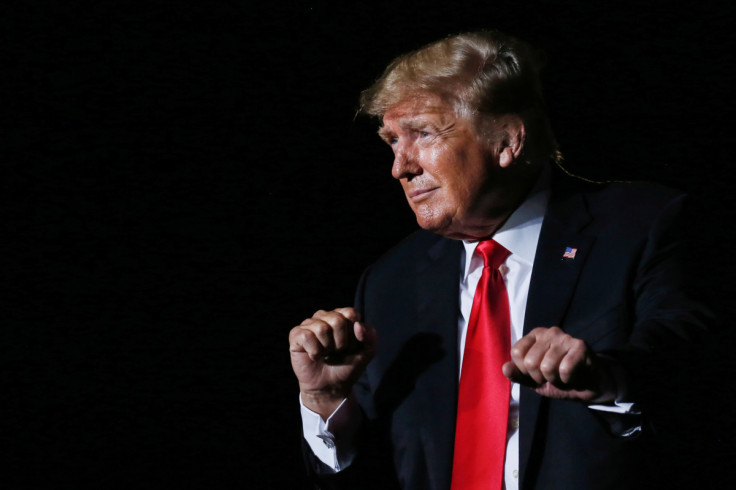Trump Ignored Consequences And Ordered Immediate Withdrawal Of Troops From Afghanistan, Somalia
KEY POINTS
- After he lost the elections, Trump rushed to complete his unfinished business, says Kinzinger
- Senior officials termed Trump's order as potentially dangerous, unfeasible, and catastrophic
- Biden administration officials blamed Trump as his deal with the Taliban left few alternatives
- In Somalia, President Biden reversed Trump's order and redeployed troops back
Following his election loss in 2020, then-President Trump rushed to sign the order for an immediate large-scale withdrawal of the U.S. troops from Afghanistan and Somalia, disregarding concerns raised by key officials about the consequences his decision would have on the fragile security situation in the two countries.
"Knowing that he had lost and that he had only weeks left in office, President Trump rushed to complete his unfinished business," said Rep. Adam Kinzinger (R-Ill.) sharing new evidence and pre-recorded testimony from several Trump White House insiders.
"One key example is this: President Trump issued an order for large-scale U.S. troop withdrawals," Kinzinger pointed out.
Rep. Kinzinger is one of two Republican members of the special House committee investigating the Jan. 6 attack on the U.S. Capitol.
"Knowing he was leaving office, he acted immediately and signed this order on Nov. 11, which would have required the immediate withdrawal of troops from Somalia and Afghanistan all to be complete before the Biden inauguration on January 20th," Rep. Kinzinger said.
Although the Afghanistan plan was ultimately set aside, Trump, by signing the order in November 2020, "disregarded concerns about the consequences for fragile governments on the front lines of the fight against ISIS and al Qaeda terrorists," Kinzinger argued.
"And yet President Trump signed the order," Rep. Kinzinger said. "These are highly consequential actions of a president who knows his term will shortly end."
During the hearing, the committee played video and audio segments of testimony provided over the past several months by some of the Trump administration's key officials, including Army Gen. Mark A. Milley, chairman of the Joint Chiefs of Staff; and retired Army Lt. Gen. Keith Kellogg, who served as national security adviser to Vice President Mike Pence.
Gen. Milley told the committee that he was shocked when he saw the withdrawal orders. "It is odd. It is non-standard," said Gen. Milley. "It is potentially dangerous. I personally thought it was militarily not feasible nor wise."
Meanwhile, Kellogg, a retired Army lieutenant general, told senior staff that the idea of immediate withdrawal was "a tremendous disservice to the nation" and implementing it would be "catastrophic."
At the time, there were about 8,000 troops stationed in Afghanistan involved in counter-terrorism operations and training government security forces. In Somalia, fewer than 1,000 troops were carrying out similar anti-terror missions.
The testimonies by these officials have helped understand the critical military choices made during the transition of two administrations that have had far-reaching global security implications. It has also demonstrated the rather erratic nature of decision-making carried out with Trump as the president.
In February 2020, the Trump administration signed a deal with the Taliban under which the U.S. agreed to withdraw all troops from Afghanistan by spring 2021. Under the deal, from which the Afghan government was left out, the Taliban agreed not to fire against the U.S. troops as they left the conflict-ridden country.
After taking over the administration, President Biden, in April 2021, decided to follow through with the Afghanistan withdrawal deal which led to the collapse of the country's government four months later.
Officials from the Biden administration blamed Trump, saying his deal with the Taliban left few alternatives.
Meanwhile, the U.S. troops in Somalia were withdrawn following Trump's direction at the fag end of his time in office.
However, in May, President Biden reversed the order and redeployed hundreds of U.S. troops back after Pentagon officials pointed out the challenges of carrying out operations on the ground. The Pentagon has since conducted airstrikes in Somalia targeting the al-Shabaab terror group.

© Copyright IBTimes 2025. All rights reserved.






















